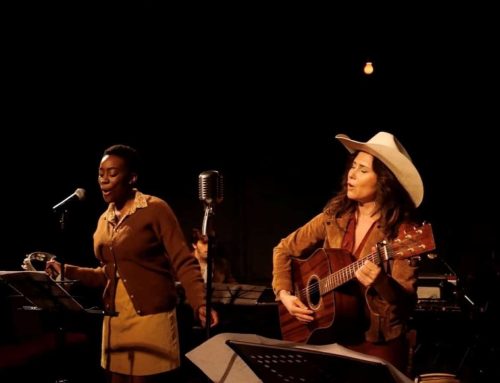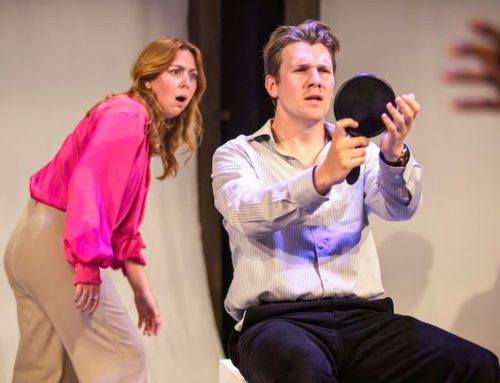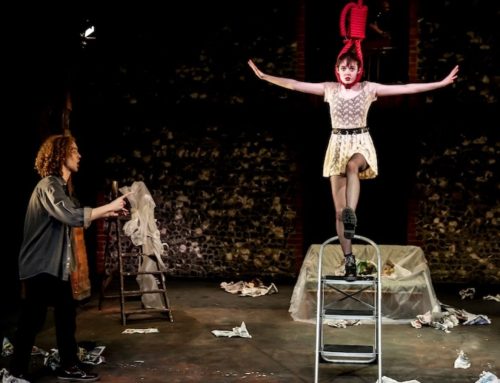In Odd Jobs, writer and director Madison Gerringer offers up a short series of absurdist comic vignettes about some of the weirdest jobs in the world. The aim is to reflect on how we relate to our work and the place that labour has in the lives we lead. “Why do we ask, ‘what do you do?’ and not ‘what do you want?’” runs the musical refrain of the last of a mostly unsatisfactory bunch of sketches. Gerringer has an interesting theme, one that the hard-working cast of six do their best with, but ultimately this bitty, thin, and incoherent piece feels very much like work-in-progress.
Watching features Kaustubh Vaidya and George Solomou as a pair of factory workers employed to examine unseen and unspecified products for their “durability and brightness”. The job is almost literally to watch paint dry. One says, “It’s not my job to train you how to do this”. The other one struggles with the task then moves on to a better job, leaving his erstwhile co-worker seething in despair. Gerringer is trying to make a point here, but so underwritten and brief is the sketch, and so quickly does she move on to the next, that one grapples to grasp it. It is a flaw that holds true throughout. It feels like ticking boxes without ever really understanding the questions.
Daydreaming sees Mackenzie Larsen and Tobi Martins-Ojo, bored at work (possibly they are security guards), acting out the imagined conversations of people they see around them. In Pretending Keaton Wilkerson amuses as the leader of a virtual team whose purpose seems to be to play Dungeons and Dragons. “How is my job any more ridiculous than yours?” he asks his disappointed and soon to be ex-partner. Actually, it sounds a great job, but we get no time to reflect. In Training Matthew Gouldesbrough plays the role of a performing seal conditioned to execute meaningless, repetitive, and pointless tasks with precision before he is rescued by animal rights activists. The best of the bunch, Clowning, sees an overworked children’s entertainer and balloon artist break down at a party and spew the c-word out to the children’s ensemble. There is pathos here, but it is swept away in the mad rush to move on.
The seemingly random selection of anti-capitalist quotations Gerringer projects on the theatre walls during scene transitions do not provide much additional insight. Presumably even socialist utopias require people to get their hands dirty doing dull, hum-drum jobs. In one of the quotations Gerringer tells us “I wrote this when I was sad”. One can tell.
Writer and Director: Madison Gerringer

More Recent Reviews
Playfight. Soho Theatre.
Writer Julia Grogan’s breathtakingly assured debut play arrives at Soho Theatre following stellar reviews at the Edinburgh Fringe and [...]
All The Happy Things. Soho Theatre.
Naomi Denny’s three-hander comedy-drama All The Happy Things covers familiar themes within a recognisable premise. A grieving protagonist comes [...]
Telly. Bread and Roses Theatre.
The challenge with absurdist comedy is that many people do not find it funny. Laughing at the sheer weirdness [...]





